Description
ABSTRACT
Rethinking Jurisdiction under the Nigerian Legal System: Need for Realignment to First Principles
Onoriode Aziza*
Jurisdictional challenges present particularly stormy waters for prospective litigants wishing to ventilate their grievances before Nigerian courts. The circumstances giving rise to potentially costly and time-consuming jurisdictional challenges are as varied as they are creative. When employed, these tactics have the potential to delay and ultimately truncate what would otherwise have been an easy path to justice. It is against this background that this article proposes a reconstruction of the doctrine of jurisdiction under Nigerian law. The writer’s central thesis is that the jurisdiction of a court is analogous to the judicial function of the sovereign power of the state, hence, a court only truly lacks jurisdiction if it lacks the authority to adjudicate over the subject matter of the dispute. In all other cases, the court has jurisdiction, but through the exercise of its discretion, in line with statute or its rules, may decide not to exercise such jurisdiction. In doing this, this article examines the number of courts and tribunals of concurrent jurisdiction below the Court of Appeal, arguing in the process, that this is a primary cause of confusion to a prospective litigant. The article takes stock of the judiciary’s interpretation of the concept of jurisdiction, arguing that the courts have conflated the concepts of “jurisdiction” and “competence” or the “existence” and “exercise” of jurisdiction, using a modern Supreme Court authority as a case study. Taking a traditional view, the article calls for a reversal of the principles laid down in Madukolu v Nkemdilim, to the extent that the case purports to lay down principles to determine the existence of jurisdiction. The article further suggests the streamlining of the courts as well as the more creative use of costs sanctions as a deterrent to frivolous jurisdictional objections.
INTRODUCTION
Jurisdiction is the lifeblood of litigation for good reason. In the absence of jurisdiction, the court or tribunal lacks the power to examine the facts before it, however meritorious those facts may be. Consequently, the doors to justice may be opened or shut with equal speed, depending on the prospective claimant’s ability to answer the jurisdictional question in the affirmative. Given the prevalence of jurisdictional objections before Nigerian courts, it is crucially important to give due attention to understanding what the jurisdictional question in its purest sense actually entails. It is only when a proper understanding of the jurisdictional question is achieved that the courts will be better placed to navigate (and hopefully put a stop to) to myriad of jurisdictional objections before them.
To achieve its central thesis, this article is divided into five parts (excluding this introduction). Part I gives an overview of the doctrine of jurisdiction. Since the article is more practical than academic, the article does not engage in an extensive examination of the jurisprudence of jurisdiction. Rather, Part I briefly discusses the concept of jurisdiction and establishes its “root” or first principles. Against this backdrop, Part II then examines the concept of jurisdiction under the Nigerian legal system. Central to this analysis, Part II examines the application of the jurisdictional analysis in three circumstances: jurisdiction over foreign defendants, substantive versus procedural
* LLB (Hons) Ife, B.L. (Hons), MCL (Hons) University of Cambridge. Associate (Nigeria) Herbert Smith Freehills LLP, London. The author is grateful to Paula Hodges QC, Hannah Ambrose, Vanessa Naish and Charlie Morgan (all of Herbert Smith Freehills LLP) for their comments on drafts of this article. The opinions expressed in this article are solely those of the author and not of Herbert Smith Freehills LLP. The author accepts responsibility for all errors in this article.

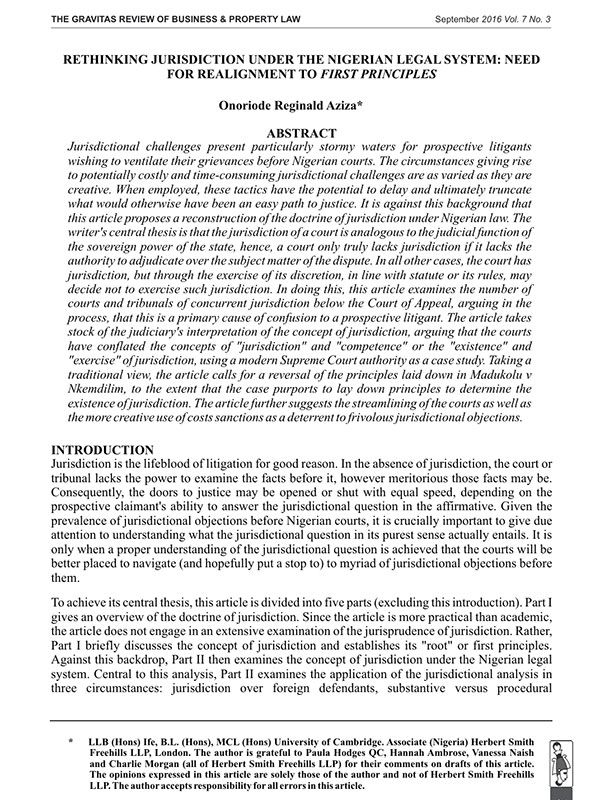
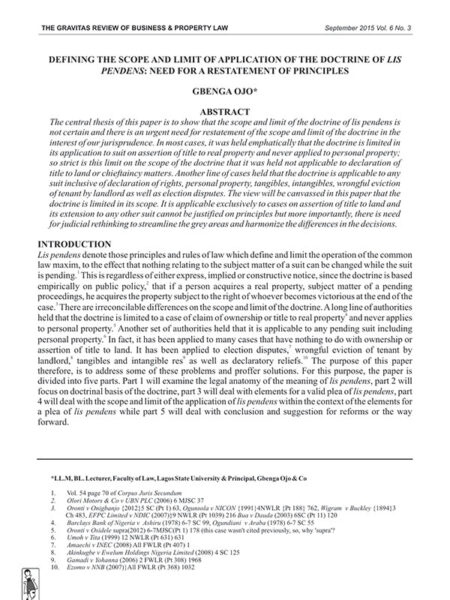
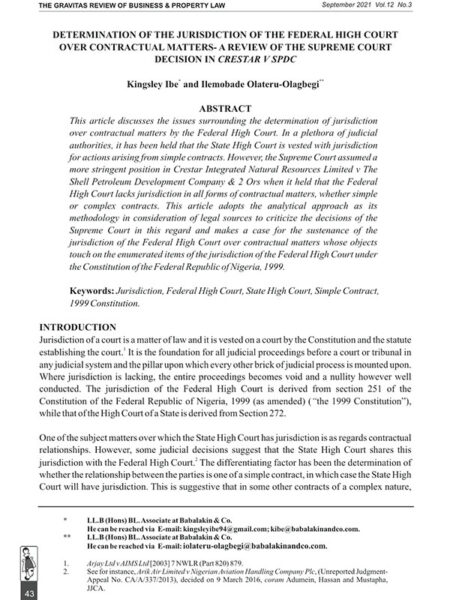
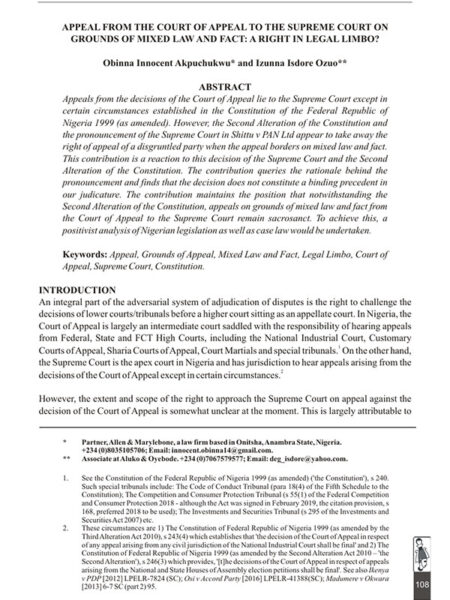
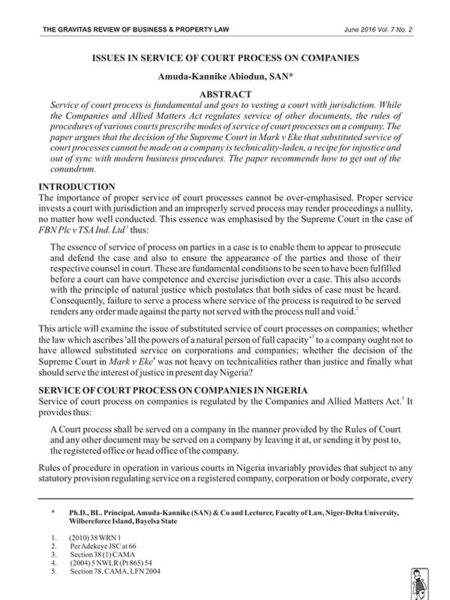


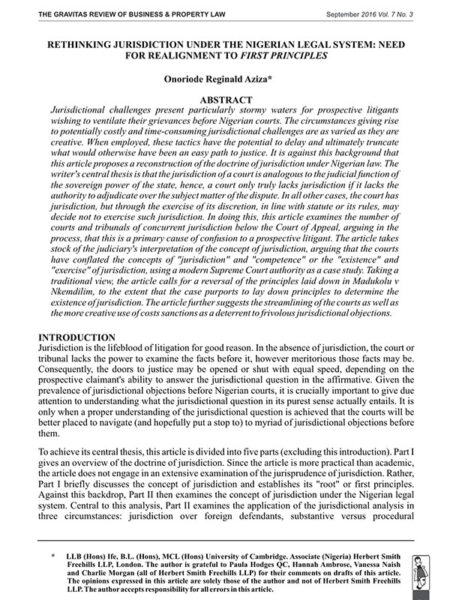
Reviews
There are no reviews yet.